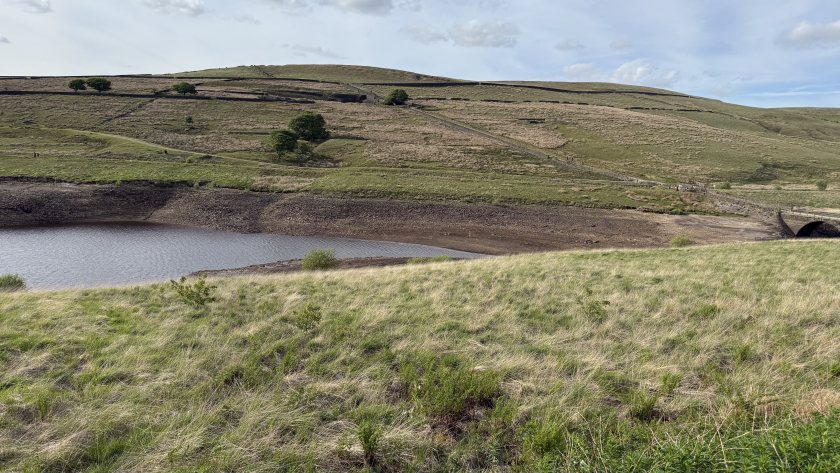Drought expands in England amid warnings of food supply risks

Large parts of England are now officially in drought, intensifying concerns about the impact of extreme weather on the country’s food production and long-term agricultural resilience.
The government has warned that this year’s crop yields could be significantly reduced due to persistent dry conditions and record-breaking temperatures.
Farmers are already facing mounting challenges, despite working collaboratively to manage water use efficiently, support one another, and explore water trading.
While the support of the Environment Agency has been welcomed, fears are growing over dwindling irrigation reservoir levels and the risk of lower yields—particularly for non-irrigated grains and straw.
The National Drought Group (NDG) met today (15 July) as drought conditions were officially declared in the West and East Midlands.
Ongoing dry weather continues to strain water resources across the country, prompting water companies to take further action to manage demand, while the public is being urged to use water wisely.
Since the NDG last convened on 5 June, the situation has worsened. In addition to the Midlands, three further areas—Lincolnshire and Northamptonshire, East Anglia, and the Thames region—have moved into prolonged dry weather status
Helen Wakeham, director of water at the Environment Agency, said: “This has been the driest start to the year since 1976, and we need to make sure our water supplies can sustain us through the summer.
"I have asked all the partners who make up the national drought group to step up their operational response to manage the drought and use water wisely.
"Environment Agency teams are out on the ground actively monitoring river levels and working to ensure there is enough water for the people and the environment."
Tom Lancaster, land, food and farming analyst at the Energy and Climate Intelligence Unit (ECIU), said the warning of poor yields underscores the escalating threat that climate change poses to UK agriculture.
“The warning of poor yields this year as a result of the record-breaking dry spring and recent extreme heat brings into sharp focus the challenges that farmers face as a result of climate change."
He noted that irrigation supplies are already under pressure following an unusually early start to the season, and without significant rainfall, high-value crops such as potatoes and vegetables could be severely impacted.
“As water for irrigation becomes less available after farmers have had to use water earlier than ever before, it is likely that high value crops such as vegetables and potatoes will be hit too unless we see significant rainfall in the coming weeks,” he added.
Mr Lancaster stressed that extreme weather is becoming a persistent challenge for the sector and called for urgent action to build resilience in the face of worsening climate impacts.
“Support for farmers to adapt is also key, with investment into new green farming schemes vital now to building the resilience of domestic food production and our long-term food security.”
The latest warnings follow ECIU-commissioned research into UK farmers’ experiences with extreme weather over the past five years
The findings paint a stark picture: over the past five years, 86% of farmers have experienced extreme rainfall, 78% have been affected by drought, and more than half have faced the impacts of heatwaves.
Only 2% reported not experiencing any form of extreme weather in that time.








